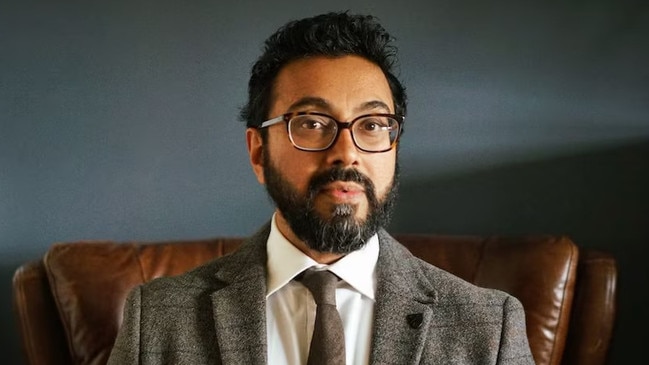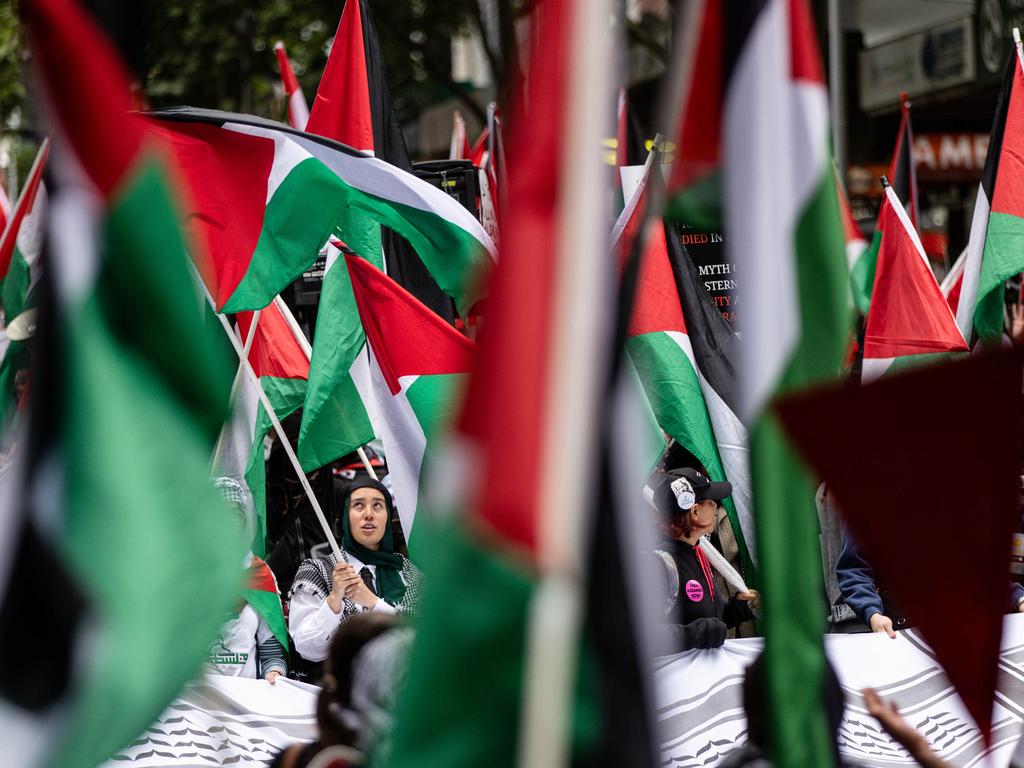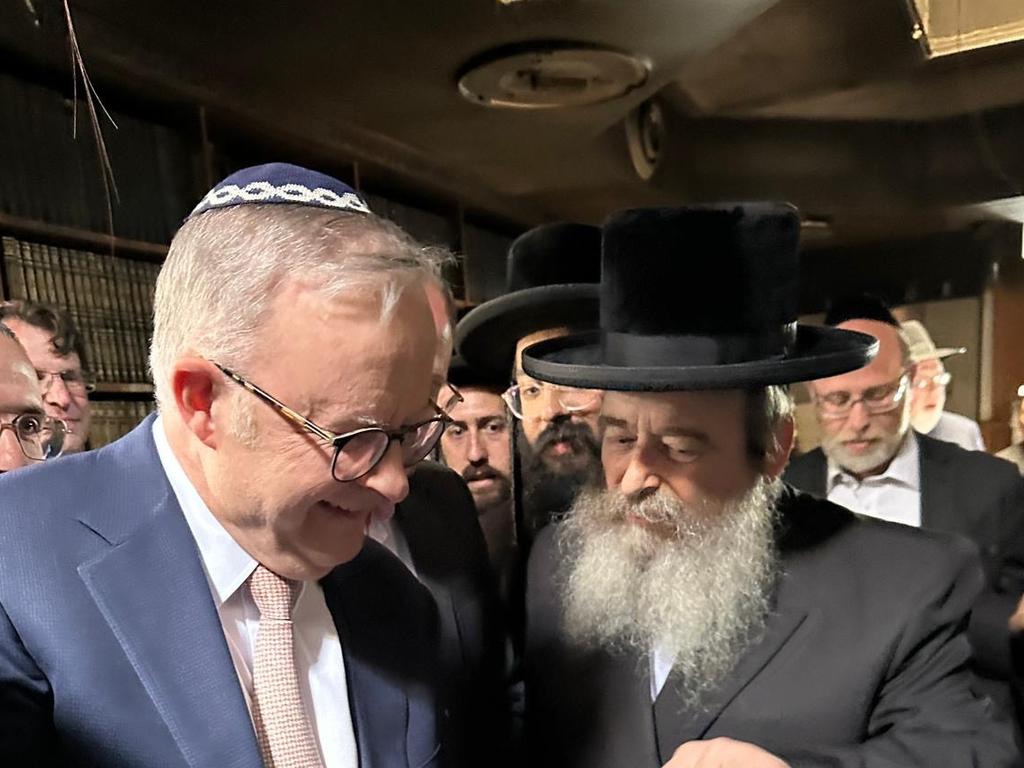Social cohesion crisis: Islamophobia envoy Aftab Malik’s ire
The political furore over social cohesion has escalated, with Anthony Albanese’s hand-picked Islamophobia envoy weighing in.

The political furore over social cohesion has escalated, with Anthony Albanese’s hand-picked Islamophobia envoy declaring we shouldn’t ignore the threat to Muslims “simply because we haven’t seen mosques torched or cars vandalised”.
In a new front on the debate to protect social harmony, Aftab Malik accused the Coalition of downplaying Islamophobia and cited the 2019 Christchurch massacre as a source of worry here.
Writing in The Australian, Mr Malik declares there were 932 reports of Islamophobia since the October 7, 2023, terror attacks in Israel – more than the previous eight years combined.
“The recent spate of attacks, including on a childcare centre, on the Jewish community is despicable, grotesque and unequivocally unacceptable,” Mr Malik writes. “Unfortunately, it appears some cannot comprehend Muslims, Arabs and Palestinians are also being subjected to vile attacks.
“The ordinariness of Islamophobia is what is so disturbing: the normalcy of hate endured out of the media spotlight.
“The fact that these despicable acts are not a spectacle does not mean they are not happening.
“That the worst Islamophobic attack in the history of New Zealand was carried out by an Australian citizen provides plenty to worry about here.
“We should be making every attempt to ensure that such an attack does not take place on Australian soil, nor downplay the rancid ideology that ultimately resulted in the murder of 50 people in Christchurch, simply because we haven’t seen mosques torched, or cars vandalised.”
Mr Malik, who also roundly condemned the rise in anti-Semitic violence in Australia since Hamas launched its October 7, 2023, attack, made the call for Islamophobia to be treated more seriously as Australian Federal Police Commissioner Reece Kershaw came under criticism for revealing he was “looking into” whether anti-Semitic attacks were being funded overseas.
Despite Mr Kershaw’s statement ahead of the national cabinet meeting on Tuesday, The Australian understands senior intelligence officials believe home-grown anti-Semitism is the core reason for the rise in hate crimes against Jews
As the Coalition demanded more answers from Labor over the AFP’s claim, the Prime Minister said it would “appear” some of the attacks were perpetrated by paid criminals who “aren’t motivated by an ideology”.
“It’s unclear who or where the payments are coming from,” he said.
The Australian understands there has been no intelligence to suggest any of the recent anti-Semitic attacks were funded by foreign actors, but the AFP is investigating the link, given that 70 per cent of criminals who target Australia are offshore.
It is unlikely any payments have come from an actor on behalf of Iran, Hamas, Hezbollah or a domestic terror group, although this is not being ruled out.
Police suspect payments for some perpetrators of recent attacks may have been facilitated by organised crime gangs based in Australia, with the rise in violence likely to be home-grown, given anti-Semitism is a bigger problem in Australia than in other Western nations. The Australian understands police are not ruling out that the perpetrator of the Adass Synagogue attack in Melbourne was a low-level criminal paid to commit the act of terrorism.
As he criticised the lack of information about foreign actors being investigated for funding anti-Semitic attacks, Peter Dutton vowed to revive the national security super agency of Home Affairs if elected, bringing ASIO and the AFP under a single banner.
The Liberal leader confirmed to The Australian that the Coalition would go to the election on a pledge to restore the department he once led as home affairs minister but which was gutted by Labor after the last election.
Policy development on its re-establishment was well advanced and would restore ASIO, the AFP, Austrac and the Australian Criminal Intelligence Commission to the Home Affairs portfolio to provide a seamless intelligence and security arrangement that the Coalition claims had been abandoned by the Albanese government.
The debate over the cause of anti-Semitic attacks came as Israel Deputy Foreign Minister Sharren Haskel suggested Mr Albanese was flaming tensions by increasingly voting against the Jewish state on UN motions.
“Obviously the attitude of the current Australian government towards Israel is inflaming a lot of these emotions and giving, I guess, some acceptance when you do not fight it,” she told the ABC.
“Words are not enough – we’ve passed that a long time ago, words are not enough. The Jewish community needs actions, and only through that, through deterrence, through investigation, prosecution … you have to fight it.
“I mean, what are they waiting for? For someone to die? For someone to be murdered?”
Mr Albanese said blaming the Australian government for the terror attacks “denies agency” of the perpetrators.
Home Affairs Minister Tony Burke said Ms Haskel’s suggestion that the government was waiting to take action on the issue was “simply not right”.
He pointed to Labor’s establishment of an anti-Semitism envoy, new laws criminalising doxxing and the introduction of hate crime legislation before the parliament as evidence of the government’s response to a spate of anti-Semitic incidents.
“The absolute rejection of anti-Semitism is there, has been made clear consistently by this government,” Mr Burke said.
As he came under pressure to give more information on the source of funding for anti-Semitic attacks, Mr Kershaw said he was “not ready to rule anything in or out … These investigative lines of inquiry are looking at whether some individuals have been paid to carry out some anti-Semitic acts in Australia. We believe criminals for hire may be behind some incidents. So part of our inquiries include who is paying those criminals: where those people are, whether they are in Australia or offshore; and what their motivation is. Criminals are using anonymising technology and we know 70 per cent of criminals who target Australia are offshore.”
NSW Police Commissioner Karen Webb urged the AFP to share information of foreign actors with state forces.
“If the AFP and other jurisdictions have information relevant to our investigations, we need to have that information,” she said.
Former Department of Home Affairs secretary Mike Pezzullo said the AFP’s decision to share insights into their line of inquiry was likely a step to “flush out leads” or send a “deterrence message”.
“Given the seriousness of the suggestion that foreign actors may be involved, it would be prudent to further advise the public about the likelihood of whether state actors are indeed involved (which would implicate foreign governments), or whether perhaps transnational hate groups are involved,” Mr Pezzullo said.
Executive Council of Australian Jewry co-chief executive Peter Wertheim – with whom Mr Albanese on Wednesday said he had “good relations” – said national cabinet needed to go further with reforms to protect Jewish Australians. “To get serious, national cabinet needs to send out riding instructions to the standing council of attorneys-general, the education ministers meeting and other arms of government to achieve a co-ordinated whole-of government response to anti-Semitism in law enforcement, legislative reform, school education, universities and civil society,” he wrote in The Australian.







To join the conversation, please log in. Don't have an account? Register
Join the conversation, you are commenting as Logout